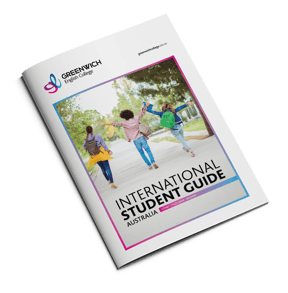
IELTS Reading Test
TASK 3
Read the sample text below then answer questions 1-12.
You’ll find the correct answers at the bottom of the page.
Are you a “pphubber”?
That is, do you snub others by constantly looking at your cellphone?
If you're guilty of pphubbing, you may want to change your ways soon: A recent survey suggests that interrupting real-life encounters to stare at your phone can damage personal relationships.
"In everyday interactions with significant others, people often assume that momentary distractions by their cellphones are not a big deal," said Meredith David, assistant professor of marketing at Baylor University in Texas and one of the researchers who conducted the survey. "However, our findings suggest that the more often a couple's time spent together is interrupted by one individual attending to his or her cellphone, the less likely it is that the other individual is satisfied in the overall relationship."
In the new survey, the researchers looked at a particular kind of "phone snubbing" known as pphubbing (yes, with two P's), which occurs when one partner snubs his or her significant other for his or her phone. Pphubbing leads to lower reported levels of relationship satisfaction, the survey found. In other words, those who are pphubbed don't feel the love.
The survey was split into two questionnaires, the first of which was completed by more than 300 people. This first series of questions helped researchers identify which cellphone-related behaviors are perceived as "pphubbing" in the context of romantic relationships.
The nine behaviors most associated with the dreaded pphub included leaving a cellphone where you can see it when spending time with your partner, keeping your cellphone in your hand when you're with your partner, glancing at your phone when talking to your partner and checking your phone when there's a lull in a conversation with your partner.
Then, using the behaviors identified as pphub-worthy in the first part of the survey, the researchers asked a separate group of 145 participants, all of whom had romantic partners, to rate their level of satisfaction with their relationships. The researchers also asked participants whether their partners' cellphone use caused conflict in the relationship.
Nearly half of those who took the second part of the survey reported being "pphubbed" at some point by their partner, and nearly a quarter of participants said that this pphubbing resulted in some kind of conflict with their better half. Of course, not everyone who took the survey reacted to being pphubbed the same way. As part of the second survey, the researchers asked questions that helped them determine a participant's "relationship style." They found that people who had a more anxious approach to being in a relationship (i.e., felt less secure about their relationship) reported higher levels of cellphone-related conflict than people who were more relaxed, and therefore more secure, about their relationships.
So how do you ensure that you are not pphubbed (or doing any pphubbing yourself)? It's simple, really. Just be more mindful of how much time you're spending on your phone, David said. People should "be cognizant of the interruptions caused by their cellphones," she said, "as these may well be harmful to their relationship."
The findings from the survey were published Aug. 15 in the journal Computers in Human Behavior.
Follow Elizabeth Palermo @techEpalermo. Follow Live Science@livescience, Facebook & Google+. Original article on Live Science.
QUESTIONS
True / False / Not Given (Questions 1 – 5)
Decide if the following statements are True, False or Not Given according to the text.
1 – Meredith David created the survey into pphubbing.
2 – People who get pphubbed are likely to fall out of love.
3 – More than 300 people have split up due to pphubbing.
4 – Over 30 people reported fighting with their partner due to pphubbing.
5 – People mostly react to being pphubbed in similar ways.
Multiple Choice (Questions 6 – 9)
Select an answer A, B or C according to the text.
6 – Meredith David suggests that:
- A. Pphubbing is not a concern.
- B. People are unaware of pphubbing.
- C. It is believed that pphubbing is not a problem.
7 – Pphubbing occurs:
- A. When our partners do not feel loved.
- B. When the satisfaction level of the relationship is low.
- C. When we choose the phone over our partners.
8 – One of the signs of pphubbing is:
- A. Looking at your phone while with your partner.
- B. Keeping your cellphone on when you are with your partner.
- C. Checking emails while your partner is talking.
9 – One way suggested to avoid pphubbing is to:
- A. Not be pphubbed.
- B. Be aware of the time spent on the phone.
- C. Spend less time with your phone.
Sentence Completion (Questions 10 – 12)
Complete the following sentences with NO MORE THAN THREE WORDS from the text.
10 – One of the telltale signs of ppubbing happens when we check our phones any time there is __________________ the conversation.
11 – People who were more confortable about being in a relationship had lower levels __________________ than those who were more anxious.
12 – People should be aware of pphubbing as interruptions caused by cellphones __________________ to their relationship.
Answers
2 – NG
3 – NG
4 – TRUE
5 – FALSE
6 – C
7 – C
8 – A
9 – B
10 – a lull in
11 – of cellphone-related conflict
12 – may be harmful
Was this test useful?
Was this test useful? Study IELTS at Greenwich – Australia’s best English College – and achieve your target IELTS score faster than you ever imagined. Check out our IELTS Preparation courses here.

 Chinese
Chinese Italian
Italian Korean
Korean Spanish
Spanish Portuguese
Portuguese Thai
Thai Vietnamese
Vietnamese





